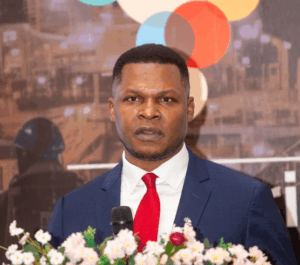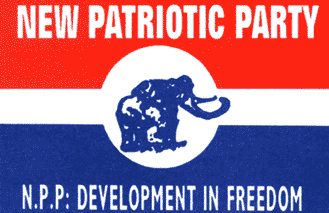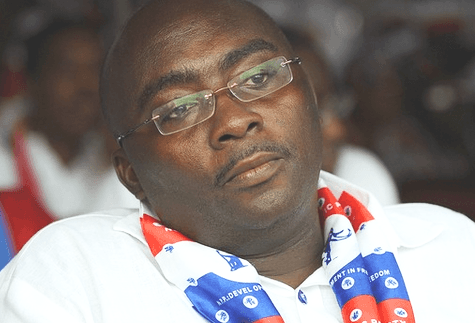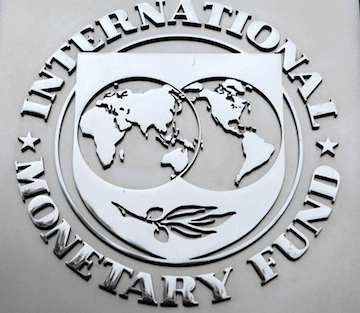
Accra, Dec 18, GNA - Thirty-seven year old Abena Anokye who shared her story with a youth group at a church sometime ago said by the time she was 19 years in the secondary school, she had aborted five pregnancies, all, except one, through the hands of a quack doctor.
She narrated with much regret that if she had access to contraceptive information and usage at that time, she would not have gone through that “unfortunate and regretful ordeal” that have made her infertile now that she was married to a much loveable husband.
She continued that her first abortion at age 16 was done in collaboration with her mother and her boy friend, who took her to a medical centre for it to be carried out.
Subsequently, her four other abortions were done behind her mother’s back by a quack doctor with the consent of her boyfriend.
“After my first experience, nobody gave me any information on contraceptive use that will protect me from getting pregnant, neither by my mother nor by the health professionals. My mom just told me to be careful not to get myself in such a mess again.
“I don’t blame my mom at all because those were the taboo days to talk about sex with children. Besides, I’m sure my mom didn’t have any information to give me apart from cautioning me to stay away from sex, which finally landed me in trouble,” Abena said regrettably.
Abena, is therefore advising all young people, especially, the adolescent girls to seek and look for information on contraception to prevent unwanted pregnancies or better still, they should as much as possible stay away from pre-marital sex until they were ready to take responsibilities of their lives in their advanced ages.
But all of society’s adults know how the adolescence stage is critical and delicate, especially when one is exposed to the wrong environment, the wrong friends, and with less information and access, and restrictive right to reproductive health services.
Reproductive health relates to the ability of women or girls to control their own fertility which is fundamental to women’s empowerment and equality.
When a woman can plan her family, she can plan the rest of her life. Protecting and promoting her reproductive rights – including the right to decide the number, timing and spacing of her children – is essential to ensuring her freedom to participate more fully and equally in society.
A universal right, including reproductive health right, is the one that applies to everyone, everywhere, regardless of income, ethnicity and place of residence or any other characteristics.
Therefore, failure to provide information, services and conditions to help the adolescent girl protect their reproductive health constitutes gender-based discrimination and is a violation of women’s rights to health and life.
However, the reality was that, today, across the developing countries, and in Ghana as well, reproductive health right was far from being universally realised, with hundred millions of women and girls still struggling to obtain information, services and supplies to either prevent pregnancy or to give birth, the State of the World Population 2017 Report has revealed.
“Whether a woman is able to exercise her reproductive rights depends in part on whether she lives in a city or a rural area, how much education she has and whether she is affluent or poor,” says the report.
The report, launched in Accra recently by the United Nations Population Fund (UNFPA), has indicated that an educated woman in an affluent household in a city for instance, was likely to have access to a full range of modern contraceptive choices, to have the power to decide whether, when, and how often to become pregnant, and if she chose to become pregnant, to give birth safely in a hospital or a clinic under the care of a health professional.
The 136-page Report, titled: “World Apart: Reproductive, Health and Rights in an age of inequality”, has noted that comparatively, a poor woman with little education in a rural setting was likely to have few options for preventing pregnancies, staying healthy during the pregnancy or delivering with the assistance of a skilled birth attendants.
And in seeking to exercise her reproductive rights, she may face social and institutional obstacles that her affluent and educated counterparts may never encounter or may easily overcome.
The report said inequalities in sexual and reproductive health correlated with economic inequality and that within most developing countries today, access to critical sexual and reproductive health care was generally lowest among the poorest 20 per cent of households, and the highest among the richest 20 per cent.
One measure of access to sexual and reproductive health services was the extent to which a woman or a girl who wanted to use modern method of contraception services had access to it.
Access to family planning services had also been noted as a fundamental element, not just of reproductive health, but of social and economic equality, since unintended pregnancies constrained opportunities that girls and women would otherwise have had for education, civic participation and economic advancement.
The World Report indicated that in the developing countries, 12.8 million adolescent girls have an unmet demand for family planning, while 43 per cent of pregnancies were unplanned.
Besides, adolescents, especially those who were not married or in a union, face more obstacles than adults in obtaining contraceptives because of restrictive laws and policies, concerns about confidentiality or stigma associated with sex at an early age.
In many parts of the developing world, adolescent girls are often forced into marriage, usually to men much older than themselves, of which the age difference alone could mean that such girls have less power in decisions about conceptive use.
A UNFPA report indicated that in 2015 there were estimated 14.5 million births to adolescents in 156 developing countries, territories and other areas, which was a recipe for higher complications and maternal death as well as a major cause of school dropout rate.
The adolescent girls typically have less access to contraception than adolescent boys, because of the discriminate prevailing attitudes about what is acceptable behaviour for girls.
Again, adolescents face additional reproductive risks because they have less access than adults to services, particularly, contraception and HIV prevention, and the girls are at greater risk than the boys.
Also regrettably, each year in the developing countries, 89 million unintended pregnancies were recorded, 48 million abortions were carried out, 10 million miscarriages occurred, with a million stillbirths recorded according to the report.
Girls under age 15 accounted for 1.1 million of the 7.3 million births among adolescent girls under age 18 every year in developing countries while 95 per cent of the world’s births to adolescents occurred in developing countries, with nine in 10 births occurring within marriage or a union.
Meanwhile, for both physiological and social reasons, women were more vulnerable than men to reproductive health problems, since collectively, complications of pregnancy or childbirth were the number two killer of women of reproductive age.
Thankfully, the UNFPA is working with countries to respond to the needs of the most marginalized and vulnerable – including adolescent girls, people living with disabilities, indigenous peoples, disabilities, indigenous peoples, migrants, women refugees, female heads of households and those living in extreme poverty.
The 2017 world report therefore, emphasised on the requirement to meet all unmet needs for family planning by prioritising women in the poorest 40 per cent of households; reach the poorest women with essential, life-saving antenatal and maternal health care.
It called on nations to tear down barriers that prevented adolescent girls and young women from accessing sexual and reproductive health information and services.
It also promised a universal social protection floored by offering basic income security and cover essential services, including maternity-related benefits and supports.
Speaking at the launching of the World Report, Mr O.B Amoah, a Deputy Minister of Local Government and Rural Development, said there was the need for governments to acknowledge the benefits of improved sexual reproductive health and work towards achieving the goals.
He said in Ghana, the sector Ministry had been working on programmes aimed at improving sexual reproductive health, especially maternal mortality at the district and regional levels.
Mr Amoah, therefore, called on the need to eliminate all manner of socio-cultural barriers, that mitigated against women and girls in the society.
Mr. Niyi Ojuolape, the Country Representative of UNFPA Ghana, said it was regrettable that the world continued to remain unequal, and that inequality was not only about money, but human rights, happiness, sexual reproductive health and childcare.
Also, African Parliamentarians who recently attended the International Conference of the Network of African Parliamentary Committees of Health in Uganda called on governments to allocate more resources to reproductive health and family planning programmes.
Among other things, the legislators also resolved to support the drive against early marriages and teenage pregnancy and to advocate for initiatives to keep the girl-child in school.
In their draft resolutions termed “Kampala Call for Action”, adopted after the two-day conference, the legislators agreed to participate in monitoring and evaluating reproductive health and family planning programmes.
They also noted that reproductive health and family planning programmes remained critically important for sustainable development of the African continent.
“It is essential to continue positioning reproductive health and family planning programmes high on the continent’s development agenda,” the resolution stated.
Aside these calls, there is also the need for governments, particularly, the Government of Ghana, to support laws and policies that operationalise task sharing for improved service delivery of reproductive health and family planning programmes for the adolescent girl.
The Government must also collaborate with the legislature, judiciary, development partners, the civil society partners, and health care professionals, to work towards ensuring access to sexual and reproductive health care for the adolescent girls in school and out of school.
That will ensure that, the adolescent girl is well informed to take the right decisions, and make the best life choices, thereby increasing her ability to stay in school, increase her production and earnings, increase her autonomy and self esteem, as well as increase equity for her.
GNA
Read Full Story


















Facebook
Twitter
Pinterest
Instagram
Google+
YouTube
LinkedIn
RSS